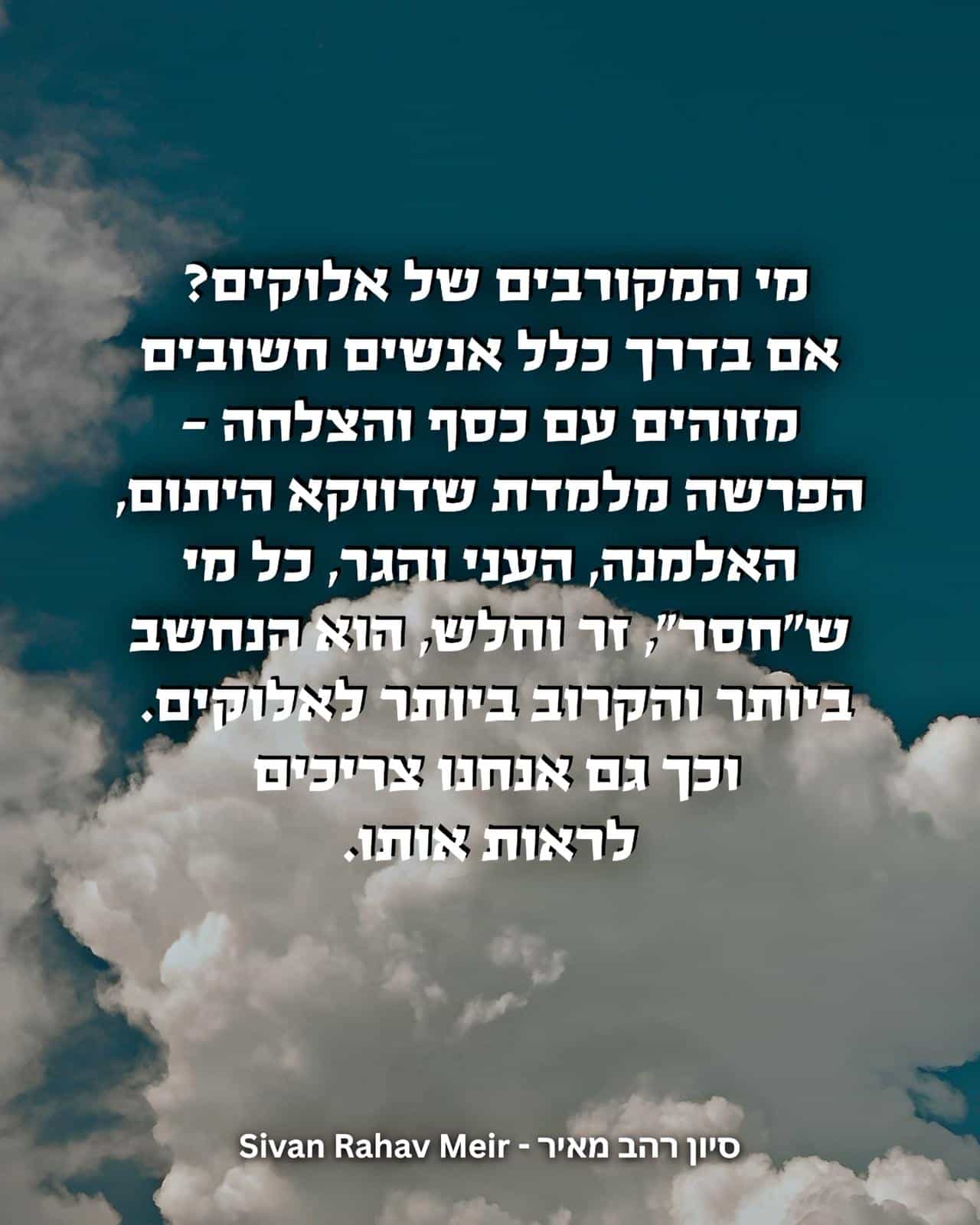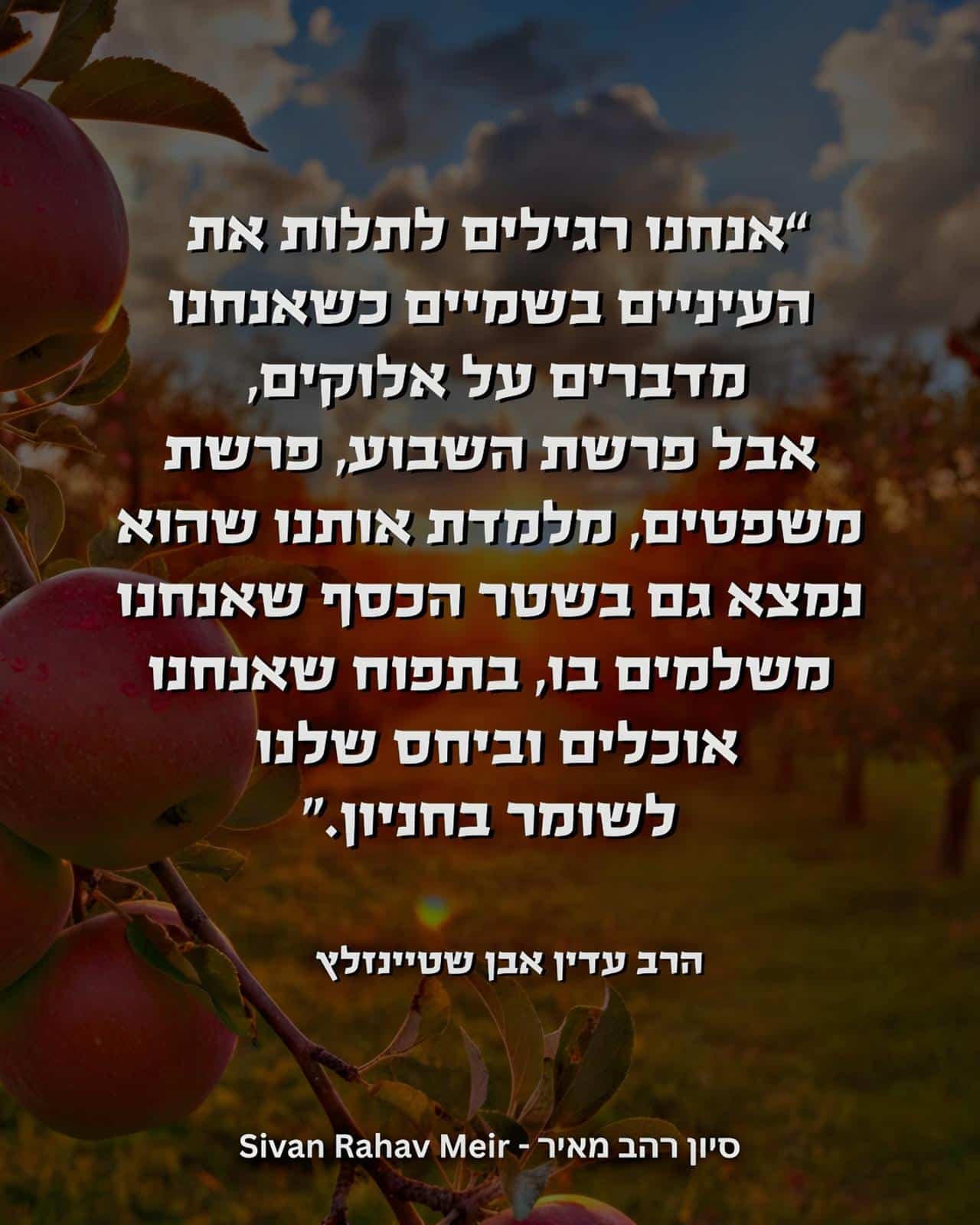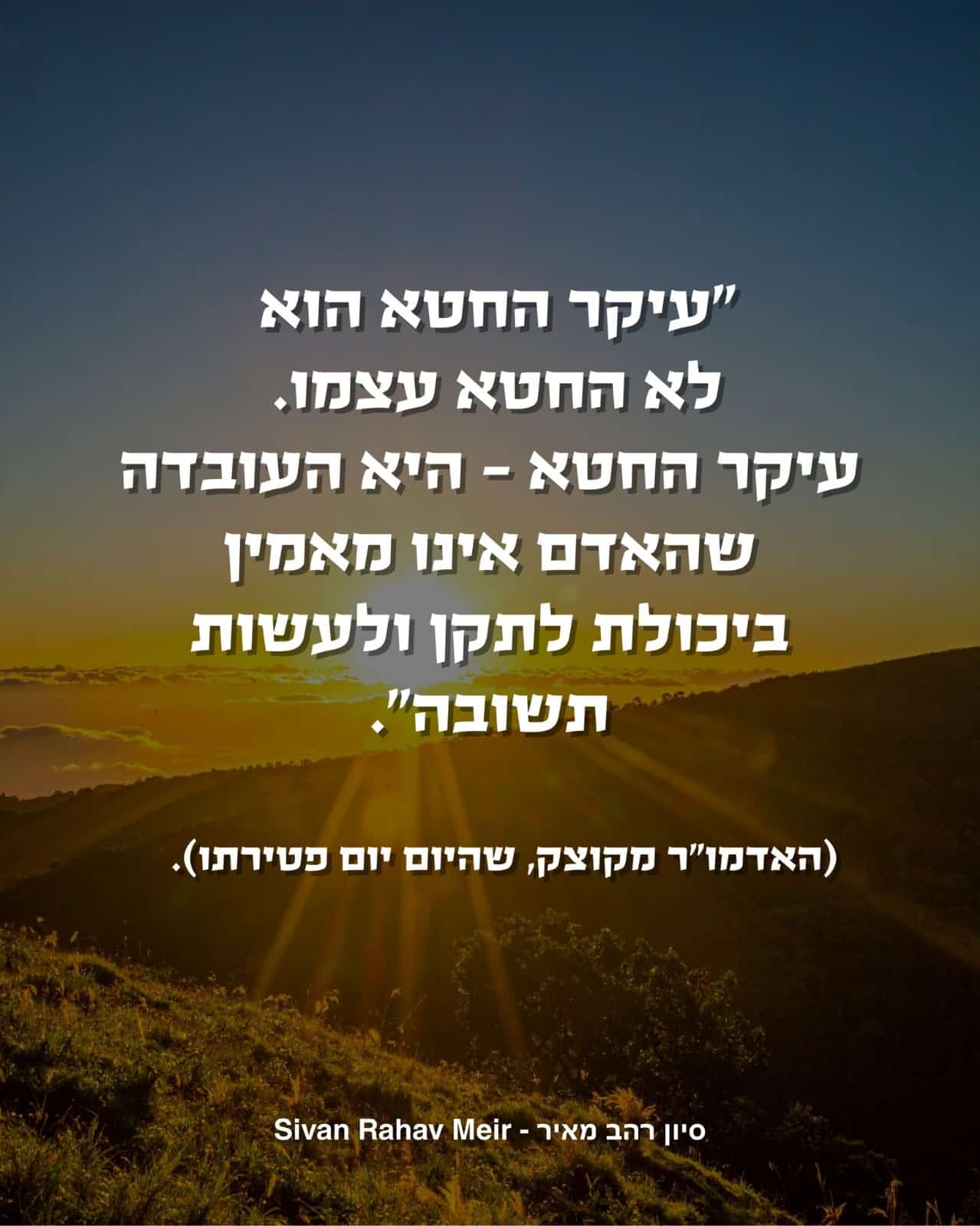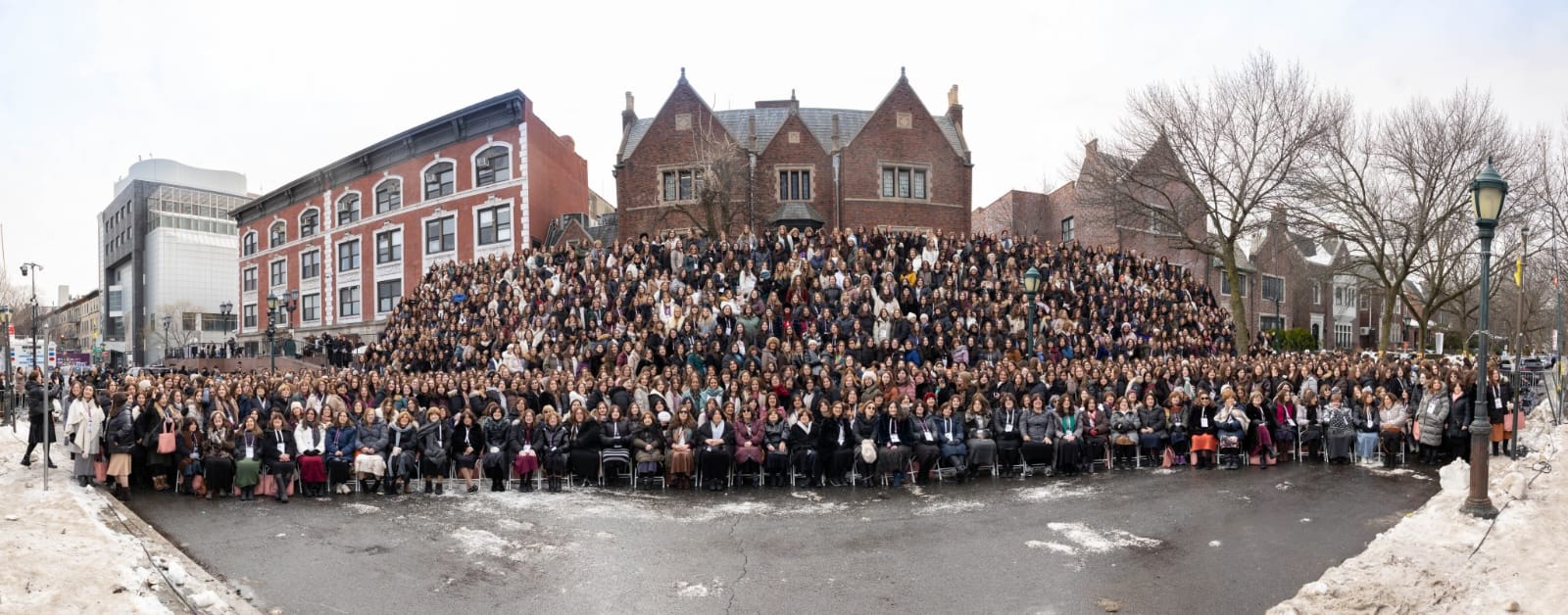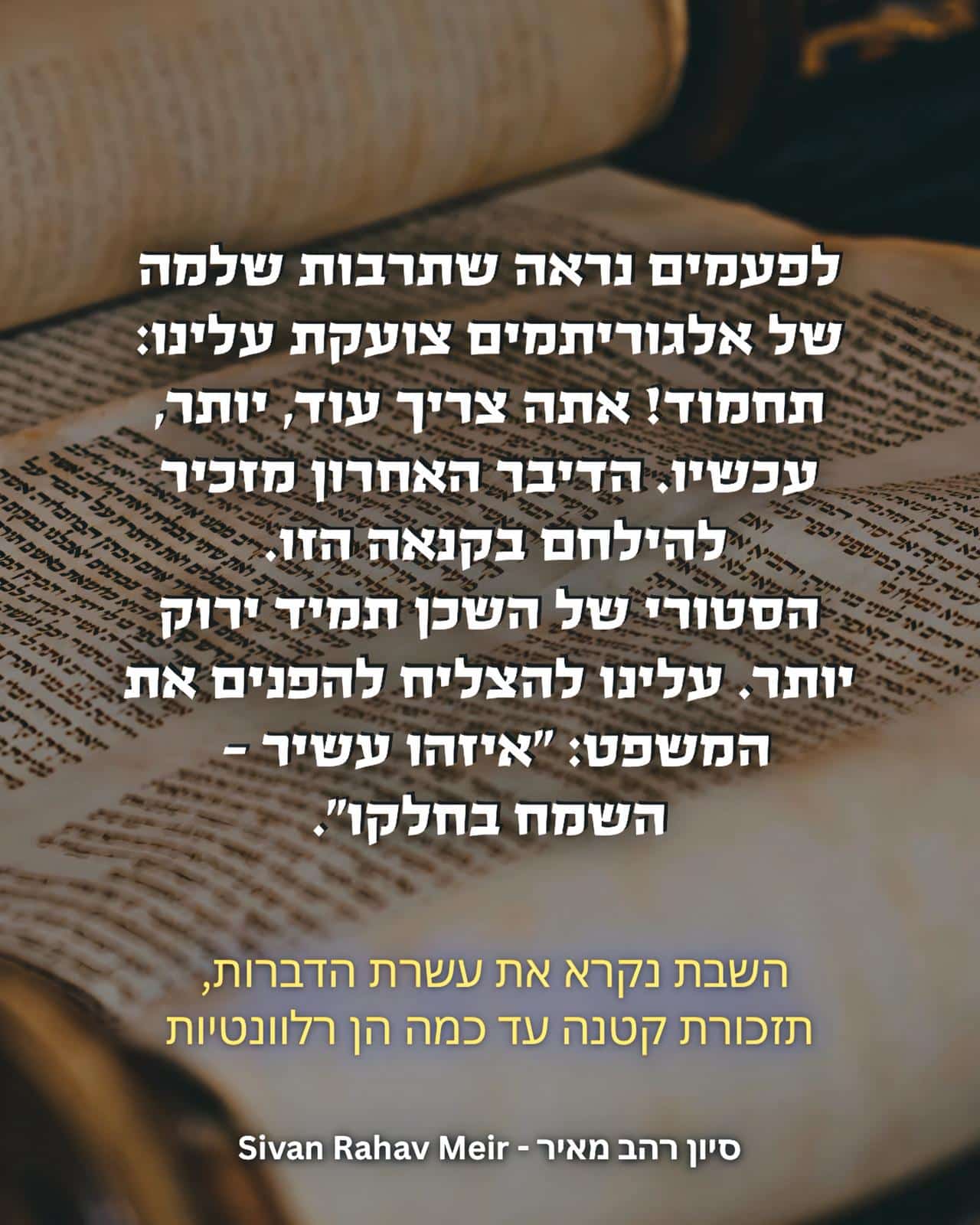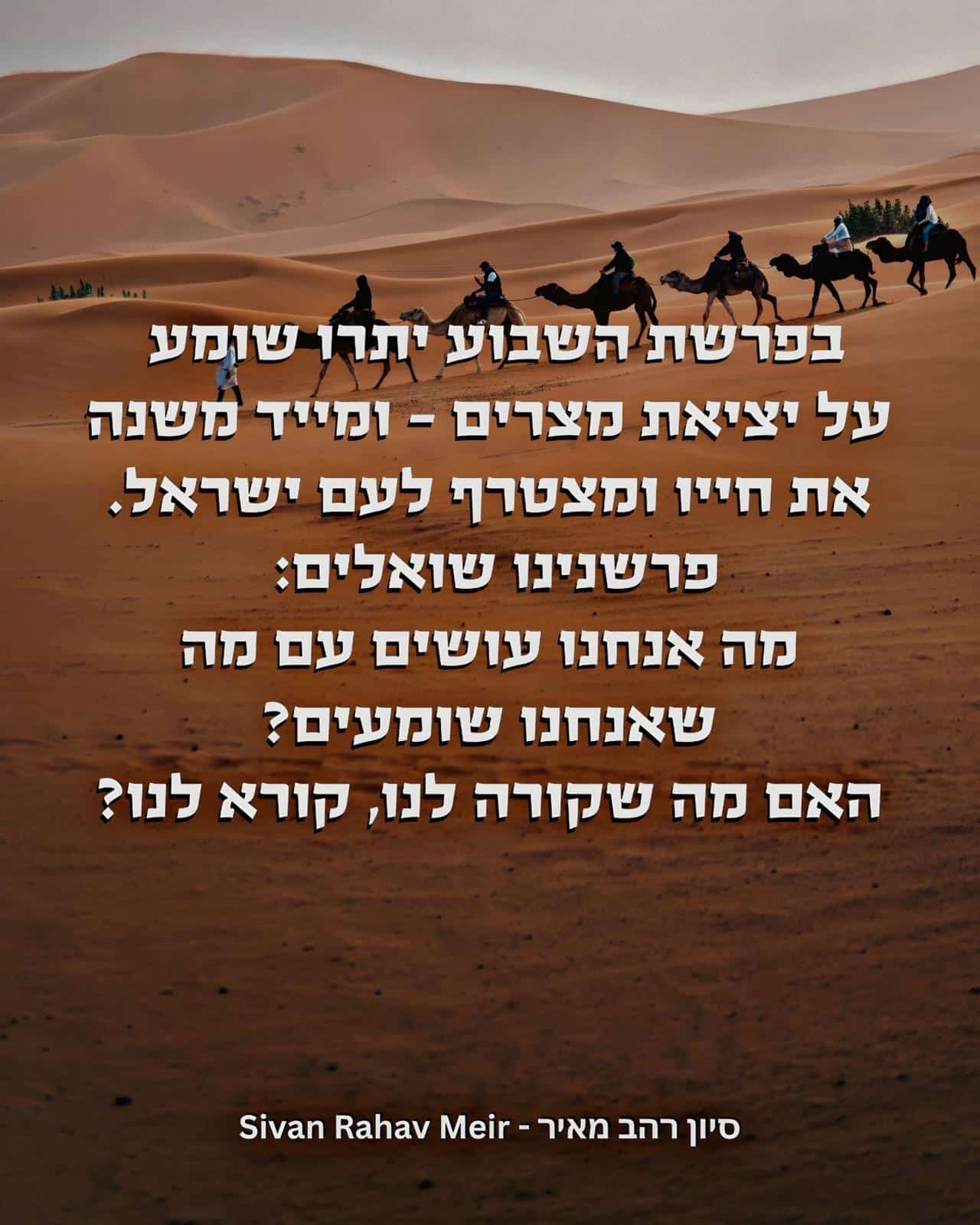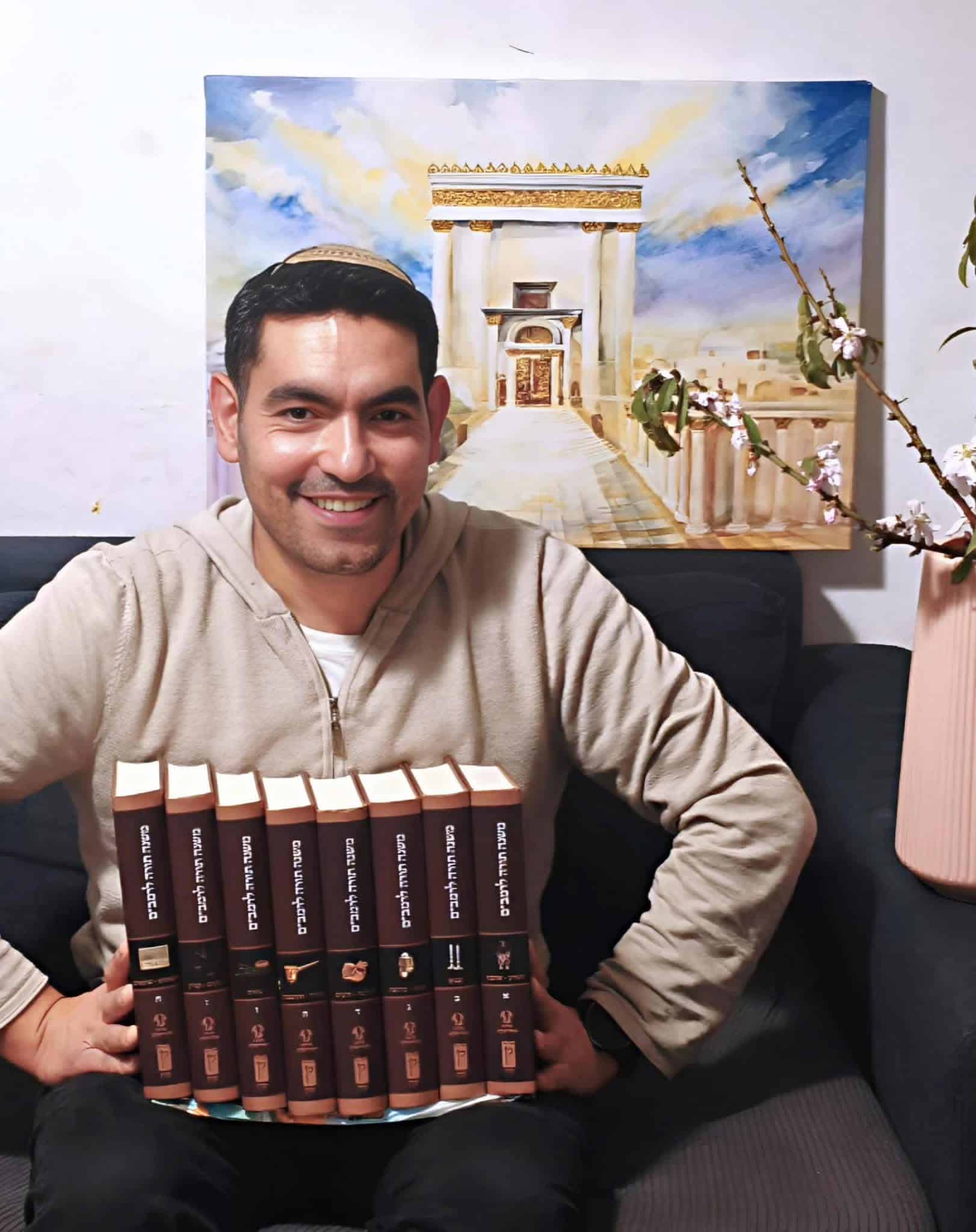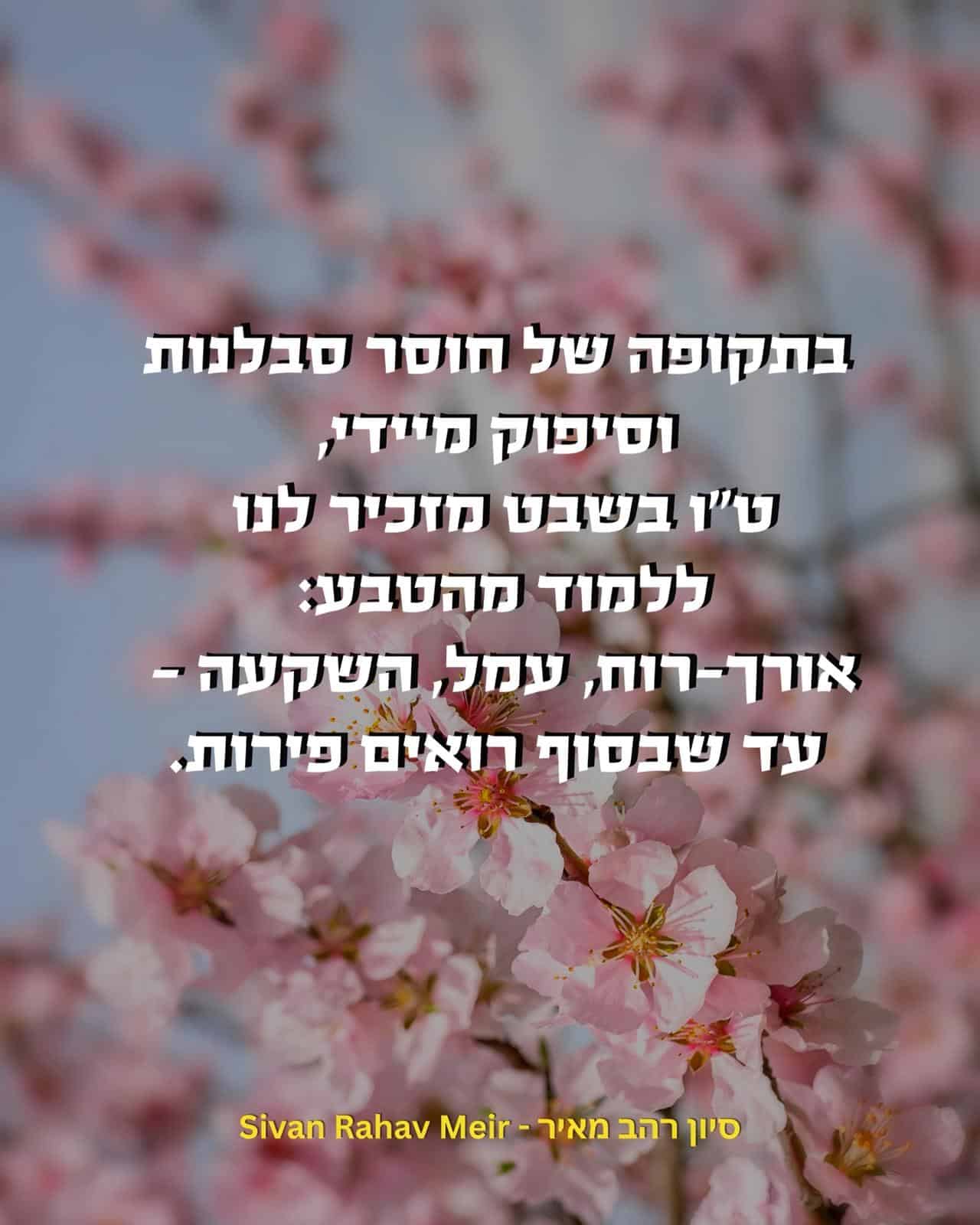Perhaps the following words from Ditza Or, the mother of hostage Avinatan Or, can benefit us. In an interview with “Hidabrut,” Ditza described how she copes with her worry and her pain:
“Every morning until 11 o’clock I allow myself to be aware of the painful feelings I am experiencing. During this time, all my emotional fortitude goes slack, all my defense mechanisms are put aside, and I permit the pain and the fear to bubble up and float on the surface. I read certain psalms and send them to my Avinatan the hostage. But after 11 o’clock I close the gate. I protect my soul and do not allow ‘terrorist’ thoughts to enter.
This response is based on the book of Tanya, a seminal work of the Chasidic movement. It is a book that calls upon the individual to allot a place for pain, but only for discrete periods of time. To rule over pain instead of allowing it to rule over us.
It’s important to allot space to this feeling since suppressing it could lead to an eventual explosion with destructive results. But it is forbidden to stay with this feeling all the time. Therefore we need to compartmentalize the pain and the tears. Only I can invite weakness and vulnerability inside and determine where and when to meet them — in the morning at home. Otherwise, they will attack me in the middle of the day. Even so, I am suddenly attacked by the pain sometimes but push it away and keep boundaries around my thoughts and emotions. There will be more time for pain tomorrow morning, until 11 o’clock.”
Rabbi Shneur Zalman of Liadi authored the book of Tanya more than 200 years ago. And now a mother in Israel ,whose son has been in captivity in Gaza for 117 days, utilizes its message and gives it as a gift to all of us. It’s a message for difficult challenges of every kind: not to suppress the pain, but not to allow it to rule over our thoughts throughout the day; to give if a defined time and place.
May we all hear good news.


